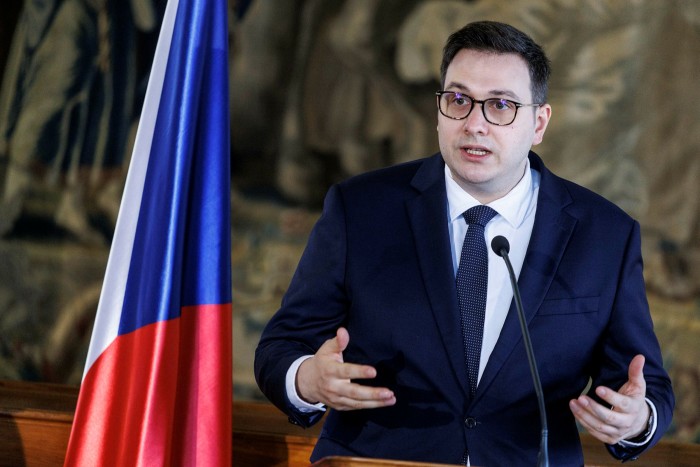[ad_1]
Hungary’s government has made a number of concessions to the European Commission in a protracted stand-off over rule of law and transparency failings, as it seeks to unlock about €15bn worth of pandemic recovery funds amid a crisis in the country’s financial markets.
Budapest has failed to get an agreement on its post-Covid proposal from the commission, which it submitted last May but which remains stuck because of deep concerns in Brussels about suspected corruption and rule of law violations. Charges that Hungary has rejected.
The resulting funding gap of around €7bn worth of grants and about €8bn in cut-rate loans has exacerbated a crisis driven by inflation and energy prices. The forint has underperformed regional peers in a sign of waning investor confidence, dropping by more than 10 per cent against the euro this year while Poland’s zloty lost 4 per cent and the Czech koruna gained slightly.
Investors are watching for the commission’s reaction to a series of proposals from Hungary after its prime minister Viktor Orbán painted an optimistic image of the EU talks at an agricultural forum.
“Everything is ready for an agreement to be struck between the union and Hungary, which I think both sides need,” said Orbán on Thursday. “We were able to make a proposal that fit their demands on public procurements, on prosecution case rules, public consultations preceding legislation and transforming the energy system.”

Hungary’s decision to come forward with detailed offers on rule of law is viewed positively by some European officials, but the complexity of the issues between the two sides is such that there is a lot of work ahead before any breakthroughs are likely. A decision to release billions of euros of recovery funding could trigger a fierce backlash in the European parliament if it appeared that the Hungarian concessions did not go far enough, MEPs warned.
Brussels launched a separate procedure in April related to Hungary’s rule of law record, which could lead to billions of euros of EU funding being held back if the differences between Brussels and Budapest cannot be settled.
Orbán added on Thursday that Hungary had managed to “separate the existing opinion differences on gender issues from the monies”, meaning the government will no longer blame the lack of funding on an EU backlash for controversial laws that banned “homosexual propaganda” in schools and the media. Brussels has always said the LGBTQ laws were not the reason for withholding the funds — a lack of transparency and suspected corruption were — but Budapest stuck to that line for a year.
Orbán’s chief of staff, Gergely Gulyás, told a press briefing on Thursday that Budapest had come to accept the EU’s demands in several key areas, outlining in some detail the four areas Orbán mentioned of procurement, prosecution, legislation and energy.

Hungary will reduce below 15 per cent the proportion of single-bidder public procurement tenders for EU and domestic monies alike, said Gulyás, without giving a timeframe.
In criminal corruption cases a new judiciary branch will have the power to force prosecutors to continue investigations or send cases to court, addressing frequent complaints of sensitive cases being stifled in the past.
Still, Orbán’s pledges alone will not be enough to calm markets, said ING economist Péter Virovácz. “The market is waiting for the EU. They want [Commission president Ursula] von der Leyen to come forward and send a positive message, meaning yes, we will make a deal, and quickly.”
A commission spokesperson confirmed that Hungary had replied last week to the EU’s action over the possible withholding of budget funding from the bloc over rule of law violations, saying Brussels “will assess the information provided and the observations made by Hungary in its reply and will take this into account before deciding on next steps”.
Asked about the latest discussions, Jan Lipavský, the minister of foreign affairs of the Czech Republic, which holds the EU’s rotating presidency, said: “It’s in the interests of all parties to find a solution, so let’s be striving for that.”
[ad_2]
Source link

